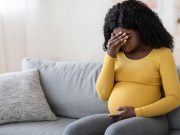Tag: Infertility
Prednisone Does Not Improve In Vitro Fertilization Outcomes
Researchers observed increased risk for preterm delivery and biochemical pregnancy loss with prednisone
Third-Party Assisted Reproduction Does Not Influence Psychological Adjustment
However, speaking to children about the circumstances of their birth at an early age may be beneficial
Lesbian Couples Using Assisted Reproductive Technology Have Better Outcomes
Authors say findings suggest that infertility-related factors may contribute to higher rates of adverse birth outcomes in assisted pregnancies
Globally, About One in Six Experience Infertility in Their Lifetime
Regional variation seen in infertility, but no variation seen in prevalence between high- and low- and middle-income countries
Little Evidence Assisted Reproduction Affects Offspring’s Pregnancy Outcomes
No obstetric or perinatal complications seen for people conceived with assisted reproductive technologies who become parents
MS Relapse Rate Not Increased After Fertility Treatments
Mean annualized relapse rate not different before versus after controlled ovarian stimulation
IVF Not Tied to Worse Developmental, Educational Outcomes
Findings for assessments conducted both at 4 to 6 years and 7 to 9 years versus spontaneously conceived children
Alcohol Intake Tied to Fertility Treatment Outcomes
Among those receiving fertility treatments who had higher alcohol intake, women had reduced odds of achieving pregnancy, while men had reduced odds of live birth by partner
Racial/Ethnic Gaps in Outcomes Larger for Infants Conceived by ART
Racial/ethnic disparities in adverse birth outcomes, such as neonatal mortality, larger among women who conceive by medically assisted reproduction
Maternal Exposure to PFAS Tied to Reproductive Function of Male Offspring
Higher maternal PFAS exposure linked to poorer semen quality in male offspring in young adulthood














